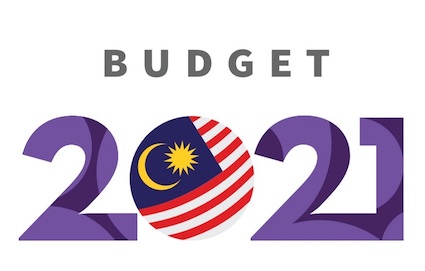All eyes on the passing of 2021 budget

(FMT) – Observers are calling for MPs to put their differences aside and come up with a consensus to pass the proposed 2021 Budget during the parliamentary voting session, which is expected to be held on Nov 25.
Institute for Democracy and Economic Affairs (IDEAS) research manager Lau Zheng Zhou said it is normal for MPs to take part in the debate and for changes to be reflected in the final budget document.
However, he stressed that should the budget not be passed, it would have significant ramifications on the country’s political stability and its effectiveness in addressing the Covid-19 pandemic crisis.
“So, the government and the opposition must try to show leadership by coming up with a consensus and produce a budget that will truly help Malaysia to recover more strongly,” Lau told Bernama.
The budget is currently being debated in the Dewan Rakyat, and several MPs have threatened to vote it down unless amendments are made, such as the substantial allocation to the Special Affairs Department (JASA).
Overall, the think tank believes that the key measures presented in the budget are balanced in its coverage of the vulnerable segment of the population, economic and business activities.
Lau said the budget aims to keep a balance between addressing job and income losses in the near term and laying the foundation for a recovery over the medium- as well as long-term.
He said that the budget is a continuation of the four economic stimulus packages, as the country enters the revitalisation stage of the economic recovery process.
However, Lau noted that the 2021 budget fell short on providing a strong and clear direction as to how the country can prepare for an economic rebound or reset.
“There were indications in the 2021 Budget speech which suggested how we can reset our economic model, such as the focus on bringing in foreign direct investment in the high-tech sector and also increasing sustainability investments.
“But it does lack imagination, considering the scale of disruption from the twin health and economic shocks that we are facing as a country,” he told Bernama.
Lau said that a new social security plan is needed for informal workers, especially those from the gig economy.
“They are not exactly employees, so they have no access to companies’ medical benefits or health insurance.
“The government should also consider a separate financial assistance programme for the most vulnerable segment of the population, for example in interior Sabah and Sarawak,” he added.
Lau noted that there were various financial assistance programmes, but the most vulnerable ones deserved a separate programme to address their unique conditions.
Expansionary budget
Meanwhile, Maybank Investment Bank Bhd (Maybank IB) chief economist Suhaimi Ilias said the budget was in line with the investment bank’s expectations of an expansionary budget, given the record-breaking total spending allocations of RM322.5 billion, up from the previous record of RM317.5 billion in 2019.
Consequently, the budget deficit will remain sizeable in 2021 at RM84.8 billion, with not much changed from the RM86.5 billion deficit estimated for 2020, he said.
“So, fiscal stimulus momentum is sustained in that sense. As usual, the concern is whether the budget is enough.
“To provide some space for additional measures in the near future to deal with the Covid-19 impact if needed, the budget also proposed for the Covid-19 Fund limit to be raised by RM20 billion, from RM45 billion to RM65 billion,” he told Bernama.
Suhaimi said revenue is expected to increase 4.2% to RM236.9 billion in 2021, so the government has to finance the shortfall for the RM322.5 billion budget through borrowings.
He noted that there were ample – and cheap – domestic liquidity, thanks partly to Bank Negara Malaysia’s measures to reduce interest rate and inject liquidity into the economy, such as the Statutory Reserve Requirement cuts and purchase of government securities in the bond market.
“I understand that voting on the 2021 Budget will be on Nov 25, so we’ll see what happens then. Hopefully, the politicians will put the people and the country first ahead of politics,” he said.
Meanwhile, the Dewan Rakyat has also approved the raising of the statutory limit on government domestic debt to 60% of gross domestic product (GDP) from 55% of GDP, providing room for higher borrowings.
“Back during the Global Financial Crisis, the statutory limit on government domestic debt was raised twice, from 40% of GDP to 45% of GDP in June 2008, and further to 55% of GDP in July 2009.
“Whether there is a need to raise again from the current ceiling of 60% of GDP depends on how the economy pans out over the next 12 months,” Suhaimi said, adding that economic growth outlook for next year would depend on the Covid-19 pandemic developments, policy and politics.
He said that the prevailing economists’ view, including international agencies like the International Monetary Fund (IMF), is that the economy will recover in 2021, and the government is addressing the policy part with the budget, coupled with accommodative monetary policy to support economic recovery.
“The kinetics of the pandemic – in terms of whether we will be able to contain current surge in cases and how soon can we have safe and effective vaccines – will be important. The wildcard is politics,” Suhaimi said.

